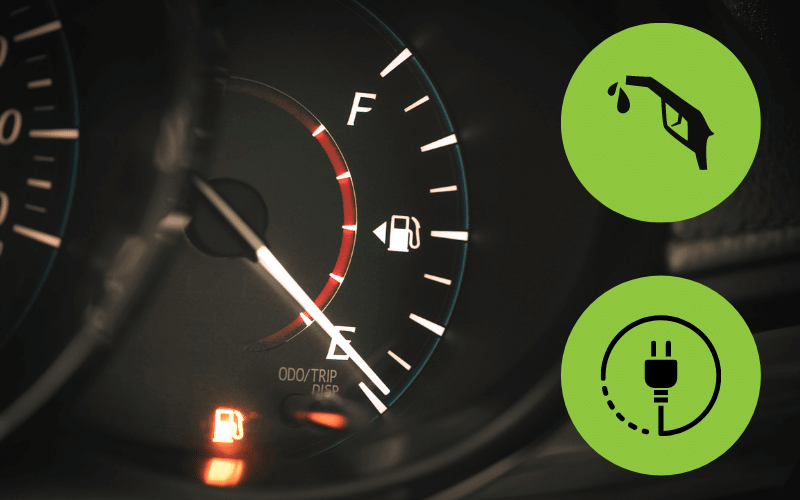It’s Friday night and you’re in the pub after work for a drink (remember those?). Your friend is on about their brand-spanking new BMW 3 Series with the heated seats and fancy alloys. “Yeah it’s part of the perks of becoming Operations Director”, they say. Meanwhile, you’re thinking of your old, tired-looking motor parked on the drive at home that has been slowly destroyed inside by the kids. Lo and behold, the motoring Gods answer your prayers and later that month you’re offered your own business vehicle. You think, “fantastic, but should I get a company car? IS it actually worth it?”. Let’s see.
It has always been a sought-after, exciting perk. For many, it holds a certain sense of prestige as to your position within the business, especially for those keeping up with the Joneses. In 2018/2019, there were over 870,000 motorists enjoying the benefits of the company car in the United Kingdom. However, it isn’t all sunshine and blue skies. The tax implications can be expensive.
How does a company car affect my tax?
Basically, the amount of tax you’ll have to pay on your company car depends on three things.
- Your earnings
- The cost of the car
- The amount of CO2 (carbon dioxide) it omits
Bad news for the FTSE 100 CEO’s driving expensive cars with high CO2 emissions (on second thoughts, with a median pay package of £3.61m – perhaps not!). The truth remains, the more you earn and the more expensive the car – combined with how high it’s emissions are – the more it will hit your pocket.
How does it work?
]In the view of the government and Her Majesty’s Revenue & Customers (HMRC), if you use your car for private purposes then you’re simply enjoying a perk and benefit-in-kind (BiK). This applies even if you’re commuting to work.
To start with, this is determined by understanding the P11D value of your shiny new vehicle. This mainly consists of the:
- List price
- Cost of delivery
- VAT
- Any optional extras (those heated seats and fancy alloys don’t sound as appealing now)
This value is then multiplied by a Benefit-in-Kind percentage aligned with the CO2 emissions of the vehicle. Et voilà! You’ve got the rateable figure for your car. Simply take your income tax rate (20%, 40% or 45% if in England and Wales) and you’ll be able to determine the amount of company car tax paid to HMRC.
Let’s rewind it back to the pub as an example. How much is your friend who loves to boast about their petrol BMW 3-Series actually paying the taxman?
Let’s say the P11D value is £30,000 and it’s omitting emissions at 110g/km of CO2. Based on these emissions, it’s placed in the BiK liability band of 25%. That gives us a rateable figure of £7,500. Now let’s apply your tax income banding. If you’re in England or Wales, this will be 20%, 40% or 45% (and if you’re north of the border in Scotland, you’ll be looking at 19%, 20%, 21%, 41% or 46%). Anyway, the figures would look something like this:-
- 20% – £1,500
- 40% – £3,000
- 45% – £3,375
A fair amount of money right? Most employers tend to deduct tax from your monthly salary rather than asking you to fork out one big sum. This is much more beneficial as you can spread the cost over a year-long period.
Do rates change?
Yes, the picture changes annually so it’s advisable to stay on top of this. BiK bands are adjusted every financial year, which runs in the United Kingdom from the 6th April to the 5th April. They’ve also increased year-on-year too. The UK Government’s yield from a company car has, on average, increased by 9% or £209, from £2,319 in 2016/17 to £2,528 the following year. The increase also follows a 7% uplift in the average yield from 2015/16 to 2016/17.

So what fuel is the most tax-efficient?
The example used above was about petrol cars, which of the 31.9 million vehicles licenced in the UK by the end of 2019, over 18.8 million used this type of fuel. For those interested in diesel-fuelled cars, it’s worth being aware that as of 1st April 2018, an additional 4% was levied to the BiK rate for this fuel. There is an exemption however, for those meeting Real Driving Emissions Standards. This charge is not applicable although only a small amount of vehicles would qualify for this.
“What about electric vehicles, the future of our green society!?” we hear you cry. As of the end of 2019, there were over 86,900 battery cars on the UK’s roads. The implications on tax look a lot more beneficial. Every electric car that was registered before 6th April 2020 paid no company car tax over the past twelve months (2020/2021). Furthermore, rates are only set to increase by 1% per annum from the 2021/2022 financial tax year.
Is there anything else I can do to reduce my company car tax?
There is indeed. If you make financial contributions to your company car scheme, your BiK rate will in turn be lowered. For those of us only using a company car part-time, you’ll also receive a lower BiK rate.
Like anything in life, there’s clearly pro’s and con’s when it comes to owning a company car. The question isn’t so much “should I get a company car?” but more “is it financially beneficial for me over buying my own?”. At least now, courtesy of our experts at Cloud Accountant.com, you have the know-how to work that out.[
Our experts at Cloud Accountant.com are well accomplished in this field and, as qualified professionals, can help you to find the right solution for you. Read more about our thoughts on Company cars here. Alternatively, Contact us today to discuss how we can help you.


